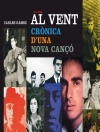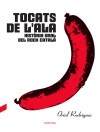The cultural history of one of rock’s greatest masterpieces told through the eyes of its creator.
Tommy, Trauma, and Postwar Youth Culture traces the development of one of rock music’s central masterpieces and its relation to the social-cultural history of the era. Composer and guitarist Pete Townshend was the creative force behind the Who, one of Britain’s greatest rock bands. Townshend grew up in an England decimated by the loss of life and hope that was the initial legacy of World War II. The product of a troubled childhood, Townshend faced ongoing struggles with sexual and personal trauma that colored his later work as a performer. An ambitious composer who wanted to create both pop hits and lasting personal works, Townshend achieved his greatest success with the Who through their 1969 rock opera, Tommy. Townshend gave many accounts of the work’s evolution and its significance to him and he participated in and encouraged its continued legacy. Dewar Mac Leod recounts his own interactions with Townshend and Tommy to draw out the work’s impact, its critical reception, its place both in postwar history and the rock era, and its continuing relevance. This book will appeal to all interested in the history of rock, the creative process, and the long shadow of the 1960s.
Mục lục
Acknowledgments
Introduction: ‘I want nothing to do with it’
1. The Plot
2. ‘California, Here I Come’
3. Historical Background: ‘It’s a boy, Mr. Townshend’
4. 1967: Toward the Rock Opera
5. 1967: Finding Baba
6. Making Tommy
7. The Album: Childhood, Cure, Fame
8. Tommy Lives
9. Tommy Reborn
Conclusion: To the Lifehouse
Postscript: What Happened to Pete
Notes
Index
Giới thiệu về tác giả
Dewar Mac Leod is Professor of History at the William Paterson University of New Jersey. He is the author of Making the Scene in the Garden State: Popular Music in New Jersey from Edison to Springsteen and Beyond and Kids of the Black Hole: Punk Rock in Postsuburban California.












